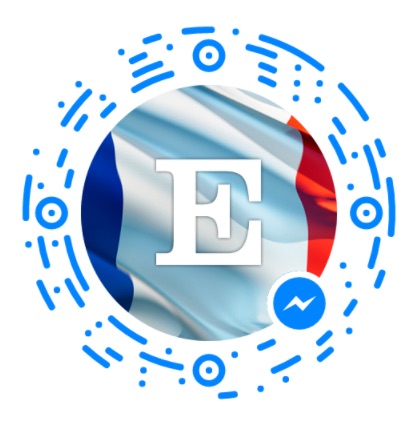Secure your place at the Digiday Media Buying Summit in Nashville, March 2-4
Spanish publisher El País drove nearly 1,000 bot subscribers over French election
When it comes to Facebook Messenger bots, more specific topics lead to more subscribers.
Since September, Spanish publisher El País’ Facebook Messenger bot — which has had at least 10,000 subscribers, although some have unsubscribed — has delivered automated news updates to followers each time something is posted to El País’ site. But last Sunday, El País promoted its French-election coverage in the print edition, printing a specific Facebook Messenger bot code to subscribe users to its bot’s election updates. As a result, 1,000 different people received the seven alerts El País sent via the bot about the French election. Eighty percent of them were new bot users. On average, 600 people ask the bot for breaking-news updates every day.
“What we want is to mix the print edition and the phone,” said David Alandete, managing editor at the publisher, adding that over half its traffic comes from mobile. While this audience won’t be new to El País, interacting with readers in their Messenger feed is a way of deepening the connection with them. “It’s a good vehicle to keep loyal readers engaged. We can interact with people who wouldn’t usually go to our app or homepage. It’s an amazing way to reach younger audiences.”
Because the bot features language recognition, followers can type in a particular topic (like international, technology or sports) or a specific El País columnist to receive specific updates. These topics correspond to the hundreds of tags in El País’ content-management system.
El País plans to continue creating topic-specific codes to add to the print edition to highlight special events and evergreen content. This weekend, it will publish a new code in the newspaper that will sign readers up to alerts from El País columnist and historian Santos Juliá. El País has other well-known contributors, like Nobel Prize winner Mario Vargas Llosa and El País founding member Juan Cruz, although Alandete said the sports columnists are proving very popular. Other well-liked topics include Donald Trump, international affairs and footballers Cristiano Ronaldo and Lionel Messi, although Alandete couldn’t provide exact numbers.

All the links in the bot direct to El País’ site, and it has seen some social referral traffic bumps in the last few days. But it’s tricky to extract cause and effect. A third of its traffic comes from social — a number that has been steadily growing — with the majority of it coming from Facebook, according to the publisher, although it wouldn’t share exact figures. El País has a Facebook following of about 3.3 million.
Other publishers are experimenting with bots as well. Recently, the BBC has swiveled to make its Brexit bot a general election bot, and The Sun has delivered football content through this channel. Despite these efforts, the bot experience can be awkward, and there’s room for improvement across the industry.
In the past, El País has tried using the bot for football results and weather information. “We want to offer more public services this way, either through TV programming, restaurant reviews or sports results,” Alandete said. While there’s no hard rule on how many alerts it will send out, it errs on the side of caution.
“Bots are not for everyone — if you have a paywall, it probably doesn’t fit within your strategy,” said Alandete. “It’s great when you want to expand your reader base. We’ve launched and adjusted it while keeping it functional, and we’re happy with the result. It’s not driving massive amounts of traffic, but it’s high-quality traffic.”
More in Media

From feeds to streets: How mega influencer Haley Baylee is diversifying beyond platform algorithms
Kalil is partnering with LinkNYC to take her social media content into the real world and the streets of NYC.

‘A brand trip’: How the creator economy showed up at this year’s Super Bowl
Super Bowl 2026 had more on-the-ground brand activations and creator participation than ever, showcasing how it’s become a massive IRL moment for the creator economy.

Media Briefing: Turning scraped content into paid assets — Amazon and Microsoft build AI marketplaces
Amazon plans an AI content marketplace to join Microsoft’s efforts and pay publishers — but it relies on AI com stop scraping for free.





